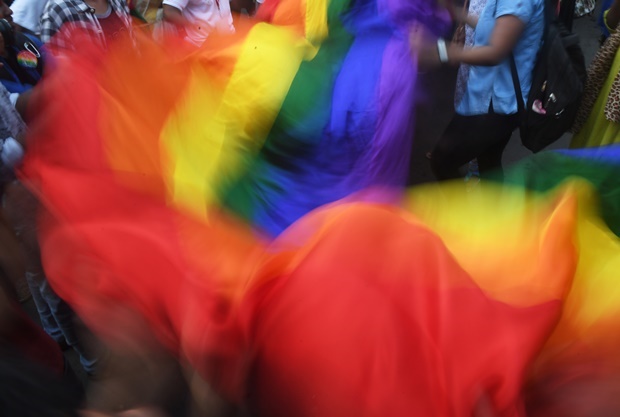
An appeals court ruling in the United States around a professor refusing to use a transgender student's pronouns is something South African universities should consider when highlighting challenges facing LGBTQI communities, writes Omphemetse Sibanda.
There are some who say that "What's in the name!" – the latest and groundbreaking freedom of expression-related case in the US about a philosophy professor at Shawnee State University in Ohio – is sure to bring much debate and contestations around the intersection of freedom of expression and the right of others not sharing the expression.
On 30 April 2021, the United States federal appeals court ruled in favour of Professor Nicholas Meriwether, who refused to use a transgender student's pronouns.
The professor filed a lawsuit in 2018 after the school formally disciplined him for refusing to follow school policy requiring the use of students' pronouns that match their gender identity. He won the appeal, which paved the way for him to sue the university, as reported by CNN, "for violating his constitutional rights after he was disciplined for refusing to use the pronouns of a transgender student".
According to the court record, the student Dean Milliken "went to Meriwether's office the next day. She "advised" that he "eliminate all sex-based references from his expression" by not using "he" or "she", "him" or "her", "Mr" or "Ms"," and so on. Meriwether pointed out that eliminating pronouns was next to impossible, especially when teaching. So he proposed a compromise: he would keep using pronouns to address most students in class but would refer to Doe using only Doe's last name.
Foreign law
Section 39(1) of the South African Constitution of 1996 provides that when interpreting the rights in the Bill of Rights, courts "may consider foreign law".
By foreign law, reference is law, including case law, from other countries.
However, the keyword is that our courts have the discretion to consider such law but are not obligated.
The ruling of the US appeal court provides an interesting and, to some degree, controversial conclusion.
In its 32-page opinion in favour of the professor, the appeal court took into account, among other things, the role universities should play in promoting robust academic and public debates, even weighing in on discourses in controversial matters of great public interest.
The decision begins with the following profound statement: "Traditionally, American universities have been beacons of intellectual diversity and academic freedom. They have prided themselves on being forums where controversial ideas are discussed and debated. And they have tried not to stifle debate by picking sides. But Shawnee State chose a different route: It punished a professor for his speech on a hotly contested issue. And it did so despite the constitutional protections afforded by the First Amendment…," wrote Judge Amul Thapar, who was appointed to the Bench by former US president Donald Trump.
Judge Thapar noted that "the district court dismissed the professor's free-speech and free-exercise claims", but that his court "sees things differently and in reverse".
Further, Thapar noted that "Professor Meriwether is also a devout Christian. He strives to live out his faith each day. And, like many people of faith, his religious convictions influence how he thinks about "human nature, marriage, gender, sexuality, morality, politics and social issues".
This case is critical in many respects, no matter how you look at it.
What is troubling is that Thapar's decision has been labelled a victory for free speech, with some hailing it as a ruling that establishes a needed boundary against American culture's new, brutish sexual orthodoxy.
Concerning a discussion on the use of pronouns themselves, Thapar wrote the following: "Never before have titles and pronouns been scrutinised as closely as they are today for their power to validate – or invalidate –someone's perceived sex or gender identity."
Taking sides
Thapar took a side in that debate. He argued that the professor's speech embodies his belief that "sex is fixed in each person from the moment of conception, and that it cannot be changed, regardless of an individual's feelings or desires". Thapar's view engraves the traditional belief that sexuality is determined at birth and by the type of sexual organ you have at birth. Unbelievable coming from a judge.
As a university professor, I was captivated by the court's apparent crusade to protect academic freedom and the freedom of expression.
One wonders if South African universities would still pride themselves as beacons of intellectual freedom and forums where controversial ideas are discussed and debated should they face a similar debate.
The Meriwether appeal decision, the controversy, including the debates it will engender, will linger on for years to come and reverberate across many jurisdictions.
Thapar highlighted that courts in America have recognised "that the free speech clause of the Constitution applies at public universities, and that professors do not shed their constitutional rights to freedom of speech or expression at the [university] gate". Notable is the US Supreme Court decision in Hurley v. Irish-Am. Gay, Lesbian & Bisexual Grp. of Bos.
In my view, this decision is not the best precedent. At least for the LGBTQI community.
To use the words of Thapar himself, his decision is "totally unpersuasive" in as much as it sought to protect academic freedom. But, there is no freedom without restriction.
In as much as academics must be encouraged to get involved in robust public debate and have their freedom of belief and expression protected, they have an obligation to protect and not infringe other rights.
Tolerance
Simply put, my opinion is that academics at public universities have a duty to teach tolerance of LGBTQI persons among their student community.
LGBTQI students should never feel threatened or ashamed to express themselves on our campuses because their lecturers took exception to their being. The humanity of others should not be flouted in the name of academic freedom and freedom of expressions, belief and religion.
Admittedly, there is a flip side to the argument I have just expressed, which comes from the ruling of Thapar itself. "By forbidding Meriwether from describing his views on gender identity even in his syllabus, Shawnee State silenced a viewpoint that could have catalysed a robust and insightful in-class discussion."
Here the issue of context, content, form and the environment matters, still. The problem with the events, in this case, is that Professor Meriwether was threatened with being blacklisted from getting a job at other universities – something reminiscent of a threat not absent at South African universities.
So, South Africa, the Meriwether case might have been decided in the US but don't you think it raises important questions we are reluctant to address as part of promoting the rights of our LGBTQI communities?
- Professor Dr Omphemetse S Sibanda, Legal Scholar Without Borders, is a professor of law and the executive dean of the Faculty of Management and Law at the University of Limpopo. He holds a Doctor of Laws (in International Economic Law) from North-West University, a Master of Laws from Georgetown University Law Centre, US and an LLB (Hon) and B Juris from the former Vista University, Soweto campus.
*Want to respond to the columnist? Send your letter or article to opinions@news24.com with your name and town or province. You are welcome to also send a profile picture. We encourage a diversity of voices and views in our readers' submissions and reserve the right not to publish any and all submissions received.
Disclaimer: News24 encourages freedom of speech and the expression of diverse views. The views of columnists published on News24 are therefore their own and do not necessarily represent the views of News24.




 Publications
Publications
 Partners
Partners
























